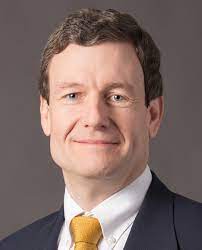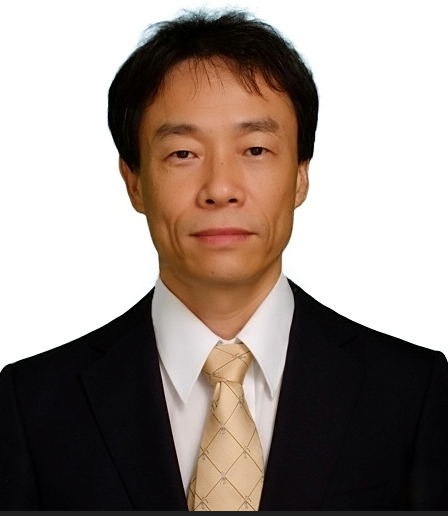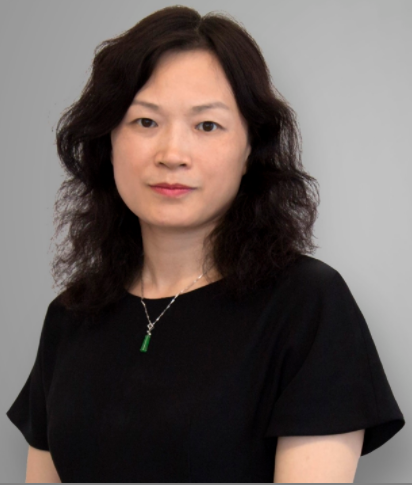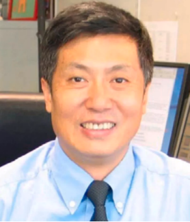| KEYNOTE SPEAKERS |
| Fiber to the Thing: Exploring optical fiber technologies for IoT |
 |
| Frank Effenberger, IEEE Fellow |
| Futurewei Technologies |
| Abstract |
|
The terminal networking of IoT devices is generally envisioned to have a wireless basis. Given the large number of endpoints, their diverse locations, and physical constraints, the use of wireless is sensible. However, there are some circumstances where wireless will not satisfy the requirements. In these cases, optical fiber could help overcoming these problems. This talk will explore some of the issues of "Fiber to the Thing." First, some use cases will be highlighted to demonstrate their unique requirements. Then the use of optical access networking technology will be explored, focusing on passive optical networks (PON) as the most directly applicable technique. PONs will be considered both as they are used today, and how they might be extended to meet the special needs of IoT. The overall topology of the network will be considered, as well as the arrangement of the data, signaling, and control layers. Lastly, a consideration on how such fiber links can be made even more cost effective will be described. |
| Biography |
|
Dr. Effenberger received the Bachelor of Engineering degree from Stevens Institute of Technology (SIT) in 1988, the Masters of Optics degree from Rochester University in 1989, and the Doctor of Philosophy degree from the University of Central Florida (UCF) in 1995. After completing his doctoral work, Frank was a research scientist at Bellcore/Telcordia Technologies, where he analyzed all types of access network technologies, especially passive optical networks. He witnessed the early development of the FSAN initiative and the APON standard. In 2000, he moved to Quantum Bridge Communications (later acquired by Motorola), where he was Director the system engineering group. His group supported the development and standardization of optical access systems based on B-PON and G-PON technologies. In 2006, Dr. Effenberger became Director of FTTx in the advanced technology department of Futurewei Technologies. He remains heavily involved in standards work, and in 2008, he became the chairman of ITU-T Q2/15. He and his team work on forward-looking fiber access technologies, including the 10G EPON, XG(S)-PON, TWDM-PON, and 50G-PON. Notably, his team supported the world's first trials of XG-PON and TWDM-PON. In 2011, he was named as one of the first class of Huawei Fellows. In 2012 was promoted to VP of access research. In 2013, his team won the Best Paper Award from the IEEE J. of Lightwave Technology. In 2014, his team demonstrated the world's first Few-mode PON, overcoming the upstream combining loss in PONs. In 2015, he was named as a Fellow of both the OSA and the IEEE. UCF gave Frank the professional achievement award in 2016, and SIT named him a distinguished alumni for engineering in 2020. More recently, Frank has served as chairman for the IEEE 802.3cp Bidirectional Optics Task Force, and as vice-chair of the ETSI Fixed 5G ISG. A prolific author, he has 240 cited papers and is an inventor on 130 US patents. |
| 6G Technologies for Supporting Smart IoT: Future Perspective |
 |
| Nei Kato, IEEE Fellow, fellow of the Engineering Academy of Japan |
| Tohoku University |
| Abstract |
|
The growing number of Internet of Things (IoT) devices are being deployed to enable users to work and live in a more efficient and convenient manner. And the applications expected to be widely adopted in 6G such as autonomous driving, smart healthcare, metaverse, and Industry 4.0 have driven the IoT towards intellectualization. To realize the smart IoT requires a series of 6G technologies to overcome existing limitations and improve the performance in the application plane, data plane, and perception plane. In this talk, I will first give some future prospects of smart IoT as well as the existing challenges in three planes. Then, I will introduce how 6G technologies can support different smart IoT applications in terms of communications, computations, energy, and intelligence. Moreover, the security and privacy issues which has been raising increasing concern will be talked. Some research works and analysis results will be also shared to inspire more creative ideas. |
| Biography |
|
Nei Kato is a full professor and the Dean with Graduate School of Information Sciences, Tohoku University (2013). He has researched on computer networking, wireless mobile communications, satellite communications, ad hoc & sensor & mesh networks, UAV networks, smart grid, AI, IoT, Big Data, and pattern recognition. He has published more than 500 papers in prestigious peer-reviewed journals and conferences. He served as the Vice-President (Member & Global Activities) of IEEE Communications Society (2018-2021), the Editor-in-Chief of IEEE Network Magazine(2015-2017), and the Editor-in-Chief of IEEE Transactions on Vehicular Technology (2017-2021). He is a Distinguished Lecturer of IEEE Communications Society and Vehicular Technology Society, a fellow of the Engineering Academy of Japan, a Fellow of IEEE, and a Fellow of IEICE. |
| Pushing the Limit of Mobile Sensing: Smart Healthcare and Digital Home in the age of AIoT |
 |
| Qian Zhang, IEEE Fellow, Editor-in-Chief of IEEE Trans. on Mobile Computing (TMC) |
| Hong Kong University of Science and Technology |
| Abstract |
|
Sensing is an effective means to connect the physical world and digital space. Exploring the intelligent sensing capability has drawn researcher’s great attention. It is quite excited to see in recent years, besides wearable sensing, people have also begun to explore the acoustic, wireless signal, light, and other ambient communication medium’s capability for sensing purpose. In this talk, I will introduce some of our work related to how to leverage the wearables and the communication medium's sensing capability to enable human-centric applications. Moreover, I will point out some potential spoofing attack that may exist in the smart sensing and interaction scenario. |
| Biography |
|
Dr. Zhang joined Hong Kong University of Science and Technology in Sept. 2005 where she is now Tencent Professor of Engineering and Chair Professor of the Department of Computer Science and Engineering. She is also serving as the co-director of Huawei-HKUST innovation lab and the director of digital life research center of HKUST. Before that, she was in Microsoft Research Asia, Beijing, from July 1999, where she was the research manager of the Wireless and Networking Group. Dr. Zhang has published more than 400 refereed papers in international leading journals and key conferences. She is the inventor of more than 50 granted International patents. Her current research interests include Internet of Things (IoT), smart health, mobile computing and sensing, wireless networking, as well as cyber security. She is a Fellow of the IEEE and a Fellow of the Hong Kong Academy of Engineering Science (HKAES). Dr. Zhang has received MIT TR100 (MIT Technology Review) world's top young innovator award. She received the Best Paper Awards in several international conferences. She received the Oversea Young Investigator Award from the National Natural Science Foundation of China (NSFC) in 2006. She held the Cheung Kong Chair Professor (长江讲座教授) in Huazhong University of Science and Technology (2012-2015). Dr. Zhang is serving as Editor-in-Chief of IEEE Trans. on Mobile Computing (TMC). She is a member of Steering Committee of IEEE Infocom. Dr. Zhang received the B.S., M.S., and Ph.D. degrees from Wuhan University, China, in 1994, 1996, and 1999, respectively, all in computer science. |
| Smart Scheduling for Edge Computing |
 |
| Weijia Jia, IEEE Fellow |
| Beijing Normal University, BNU-UIC Institute of Artificial Intelligence and future Networks |
| Abstract |
|
Mobile Edge Computing (EC) is a flexible architecture to support distributed domain-specific applications with cloud-like quality of service. However, current MEC still lacks the mobility support mechanism when facing many mobile tasks with diversified quality requirements. Such mobility-quality support mechanism can be critical for industrial internet and smart city applications. Due to the features of lightweight and easy deployment, the use of containers has emerged as a promising approach for MEC. Before running the container, an image composed of several layers must exist locally. However, it has been conspicuously neglected by existing work that task scheduling at the granularity of the layer instead of the image can significantly reduce the task completion time to further meet the real-time requirement and resource efficiency in resource-limited MEC. Based on the observations, this talk will introduce our recent investigations on novel offline and online task/ container/image/layer scheduling algorithms in heterogeneous MEC environments with AI technology. |
| Biography |
|
Weijia Jia is currently a Chair Professor and Director of AI and Future Networking Research Institute of Beijing Normal University (BNU, Zhuhai), Guangdong, China. He also serves as the VP for Research at BNU-HKBU United International College (UIC). Prior joing BNU/UIC, he served as the Deputy Director of State Kay Laboratory of Internet of Things for Smart City at the University of Macau and was Zhiyuan Chair Professor at Shanghai Jiaotong University. He received BSc/MSc from Center South University, China in 82/84 and Master of Applied Sci./PhD from Polytechnic Faculty of Mons, Belgium in 92/93, respectively, all in computer science. For 93-95, he joined German National Research Center for Information Science (GMD) as a research fellow. From 95-13, he worked in City University of Hong Kong as a professor. His contributions have been reconganized as smart edge computing, optimal network routing and deployment; vertex cover; anycast and QoS routing, and sensors networking; knowledge relation extractions and NLP. He has over 600 publications in the prestige international journals/conferences and research books and book chapters. He has received the best product awards from the International Science & Tech. Expo (Shenzhen) in 2011/2012 and the 1st Prize of Scientific Research Awards from the Ministry of Education of China in 2017 (2) and many provincial science-tech awards. He has served as area editor for various prestige international journals, chair and PC member/keynote speaker for many top international conferences. He is the Fellow of IEEE and the Distinguished Member of CCF. |
Created and Maintained by IEEE SmartIoT2022
